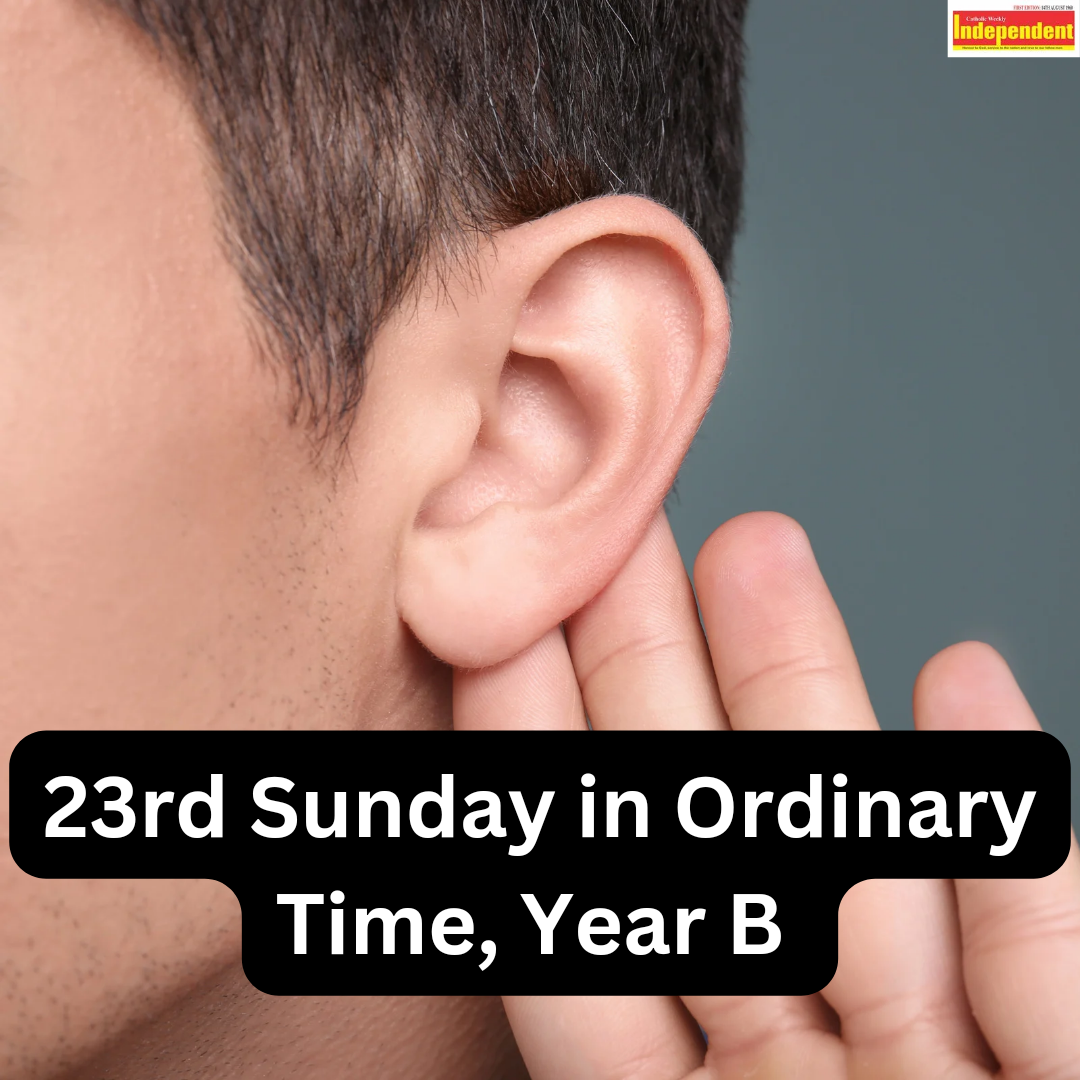
LISTEN AND THE DESIRED CHANGE WILL COME
Imagine your first anything: your first swimming experience, your first airplane flight, and your first day on the job. For all my firsts, there seemed always to be a person standing by telling me not to be afraid, “Don’t be scared.” Easy for them to say, I’m standing out here alone!
The people to whom the prophesy of Isaiah is addressed in our First Reading, are in exile, distant from their homes and standing on the edge of life, quite alone. The prophet predicts that things are going to get better so the people should buck up and take courage. I wonder how they responded to these good words about their futures.
God will be coming soon and that presence will cure the blind, lame and deaf as well as those with impediments of speech. The soon-to-arrive God will change natural geology. The deserts will have water and so be fertile with rivers and pools. I would imagine some human hearts and minds were a bit skeptical, “ah, right”, “I’ll believe it when I dive into those pools...”
Be sure not to listen to the Second Reading. Listen instead to your own skeptical voice which says that the poor are going to inherit the kingdom and that we should not celebrate those who want to become “millionaires.” Turn your heart’s hearing aids off and that Reading won’t bother you so much.
The Gospel is literally a quite touching story. People bring to Jesus a man who has hearing loss and an inability to communicate through sound-words.
We formerly referred to such persons as “deaf and dumb” - how cruel. This man’s friends ask Jesus to lay hands on him which he does by putting his own fingers into the man’s ears while praying groanfully. He then prays, “Be open”. The crowd sees that Jesus has done all things well by fulfilling the expectations of what a Messiah should be doing.
Perhaps the difference between listening and hearing is that when we are listening we allow what we hear to change something within us or about us, or about others. A priest was speaking to several groups of persons who were blind or who had low vision. This was in South Korea.
My main message which he was asking them to listen to deeply was that they were accustomed to being called, and calling themselves “blind persons”.
Through his translator he was asking them to hear the difference when he calls them, “persons who are blind.” His translator paused when she heard him saying this, and she leaned over to him and said that the concept was impossible to translate into Korean. He said to her softly, that it is almost impossible for people not to define themselves by accidental terms.
The Gospel calls this fellow, “a deaf person”. That is what others called him and so that was his name, his image, his defectiveness. In placing His fingers into the man’s ears, Jesus is asking the man to be open to whom Jesus names him. The challenge before the man then, would be to live that healed name.
Jesus redeems this man more than heals him. This is the work, the laboring, of Jesus to bring all of us out of our deafness, to lives of hearing deeply that to which Jesus asks us to listen. He did all things well, except He cannot force any of us to really listen and allow what we hear to bring us more into full creation.
Listening to adjectives by which we define ourselves impedes our ability to hear. We have our own personal fingers in our ears and we can be so accustomed to not listening that we can assume nothing different is being spoken.
There is a challenge implied in our hearing what Jesus says about us. Change comes from listening, but change is frightening and so we hear the ever-present God saying to us as well, “Swim, fly, dive, dance, do not be afraid, things are going to be better if you hear who you really are.”
“Like a deer that longs for running streams, my soul longs for you, my God. My soul is thirsting for the living God.” Ps. 42, 2-3



Leave a Comment